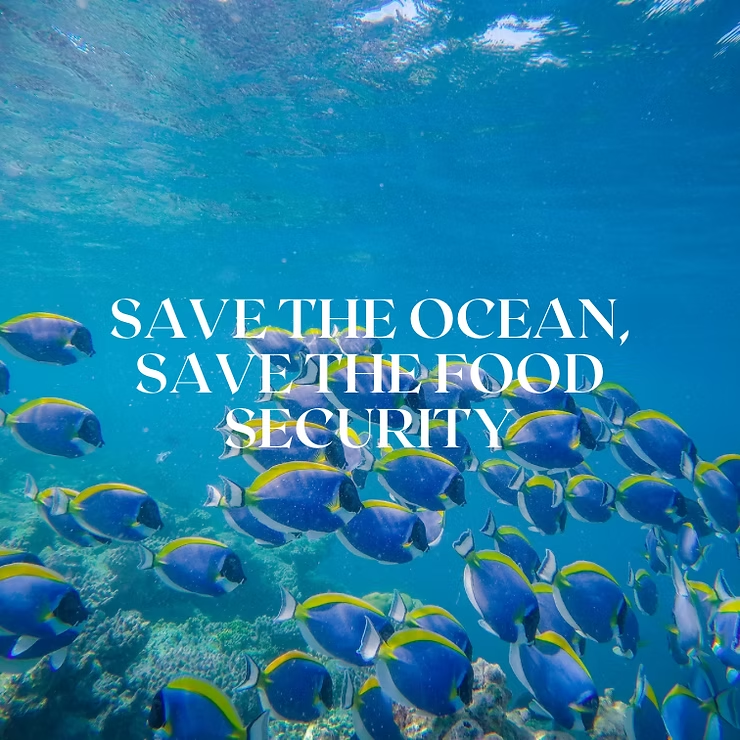Overview
The Importance of the Ocean
The ocean is far more than a breathtaking natural wonder. It regulates Earth’s climate, produces oxygen, and provides a home for countless species. More than three billion people rely on seafood as their primary protein source, while millions depend on the ocean for jobs and income. Beyond survival, the ocean inspires exploration and recreation, enriching human life in countless ways. Protecting it is not optional—it is essential for our planet’s future.
The Threats to the Ocean
Oceans face mounting threats that endanger their health and biodiversity. Overfishing depletes stocks and destabilizes ecosystems, while pollution, especially from plastic, suffocates marine life and contaminates food chains. Climate change worsens these challenges, triggering acidification, coral bleaching, and rising sea levels. Without swift action, these issues could permanently alter marine environments and jeopardize human survival.
The Impact on Food Security
Food security is directly tied to ocean health. Overfishing and habitat destruction reduce fish populations, leaving vulnerable communities at risk of protein shortages. Polluted waters can contaminate seafood, posing health hazards for consumers. Safeguarding oceans ensures stable fish stocks, cleaner food sources, and healthier communities worldwide.
Sustainable Fishing Practices
Regulating Fishing Activities
Responsible regulation is critical to balancing conservation with economic needs. Measures such as catch limits, gear restrictions, selective fishing techniques, and marine protected areas help sustain fish populations while preventing overexploitation.
Protecting Marine Biodiversity
Preserving ecosystems and habitats is vital for long-term ocean resilience. This includes creating marine protected areas, reducing pollution, and supporting sustainable practices that ensure diverse species can thrive.
Promoting Responsible Consumption
Consumers and businesses alike influence ocean sustainability. Choosing certified sustainable seafood, avoiding overfished species, and supporting transparent labeling empower individuals to make a meaningful difference. Restaurants and suppliers that prioritize eco-friendly sourcing help drive systemic change.
Reducing Plastic Pollution
Raising Awareness and Education
Public awareness is a powerful tool. Education campaigns, workshops, and school programs highlight the dangers of plastic waste and empower individuals to make sustainable choices.
Implementing Effective Waste Management
Community recycling initiatives, improved disposal facilities, and widespread use of eco-friendly packaging reduce the amount of plastic entering oceans. Promoting responsible waste management creates long-term cultural shifts toward sustainability.
Encouraging Sustainable Packaging
- Adopt biodegradable materials for packaging
- Promote reusable options to reduce waste
- Support companies that prioritize eco-friendly packaging solutions
These strategies can significantly cut plastic waste and protect both marine life and food security.
Collaboration and Policy Changes
International Cooperation
Global challenges require global solutions. Shared research, joint conservation programs, and unified policies can enhance marine protection and improve food security worldwide.
Government Regulations and Incentives
Governments play a central role in ocean conservation by enforcing sustainable fishing regulations and offering incentives that encourage businesses and individuals to adopt eco-friendly practices.
Corporate Responsibility
Businesses can reduce plastic waste, support sustainable sourcing, and integrate responsible practices throughout their supply chains. Corporate collaboration with governments and NGOs amplifies conservation impact, ensuring healthier oceans for future generations.
Conclusion
Safeguarding the ocean requires collective responsibility—individuals, governments, businesses, and international bodies must work together. Every action, from choosing sustainable seafood to supporting marine policies, strengthens food security and protects biodiversity.
Save Our Blue Ocean is committed to raising awareness and inspiring action. Through our bracelets featuring turtles, sharks, and whales, we aim to spread the message of ocean conservation. Every purchase supports our mission and funds initiatives that protect marine life. Visit Save Our Blue Ocean | Ocean Gift Malaysia to join the movement and help secure a healthier ocean for generations to come.

